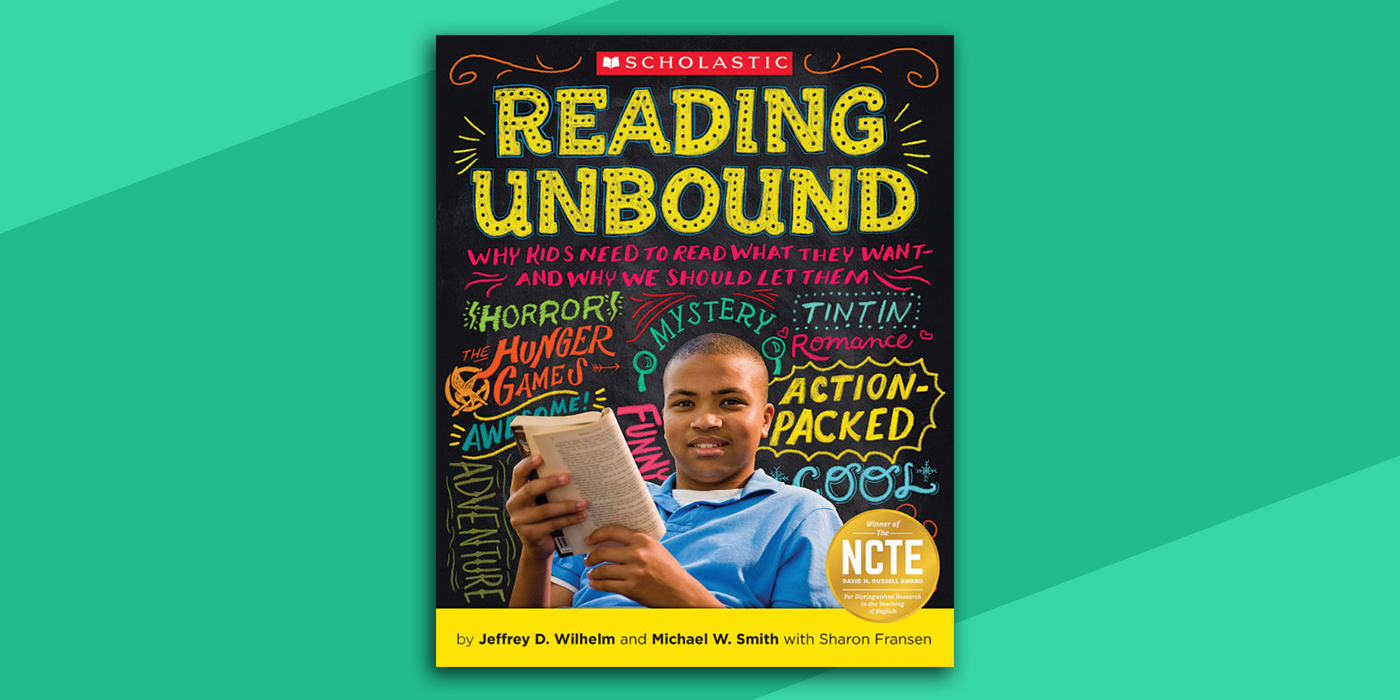We want to be the kind of teachers who help our students fall in love with books in ways that foster a lifelong devotion to reading. If we are to succeed, then we need to keep—at the forefront of our attention and in all of its various forms—the rich, complex, and profound pleasures of reading.
The purpose of Reading Unbound: Why Kids Need to Read What They Want and Why We Should Let Them is to explore the nature and variety of the pleasures that adolescents take from the reading they do outside of school. From our research we’ve been able to derive major instructional principles we hope will be generative in your examination of your practice.
Here are two important principles to consider to help foster a lifelong love of reading among your students:
Principle 1: Make pleasure more central to our practice.
We think the implications of this resolution are enormous. One implication is that we would have to be mindful of the variety of pleasures that readers can take from their reading and not privilege intellectual pleasures, the characteristic province of school. To be sure, throughout our book we highlight examples of our participants taking pleasure in making thematic generalizations, in figuring out metaphors, in carefully analyzing the aesthetic choices an author makes, and in making subtle distinctions among related genres, intellectual pleasures all.
But we also see examples of the pleasure of entering a story world and living through a character’s actions, of trying on a character’s perspectives and thinking about what it might mean for how one wants to live, of sharing one’s reading with friends. We should also choose texts that provide this variety of pleasure (or let our students choose them). And we should expand on and explore pleasures like these through the use of action and drama strategies in response to reading.
Another implication would be to work to expand the range of texts in which students can take pleasure, taking care as we do so to teach in a way that engages students in experiencing the pleasure of texts that they might not select on their own, while recognizing that this pleasure might not be easily forthcoming. Let’s think about what our resolution might say about selecting texts. Student choice is safer than teacher choice. Variety is safer than similarity.
Principle 2: Make interpretive complexity equal to text complexity in planning.
We’re not dumbing down the curriculum if our students are reading graphic novels, or dark fiction, or Harry Potter. All of these texts require sophisticated strategies for entering a story world. In fact, as we show in our book, all of them foster inner work built on making thematic generalizations. All of them provide the pleasure of figuring out complicated puzzles and wrestling with big ideas. If familiar texts and young adult novels allow for greater interpretive complexity—due to their familiarity or how closely they address student interests—then that is enough reason to include them in the curriculum.
With keeping these principles and more in mind, maybe we can make school reading different. Maybe if we recognize and applaud the pleasures readers take from texts like the Harry Potter series, school reading can be something that students want to do as well.
Find out more ways to help your students fall in love with books with Reading Unbound: Why Kids Need to Read What They Want and Why We Should Let Them.
